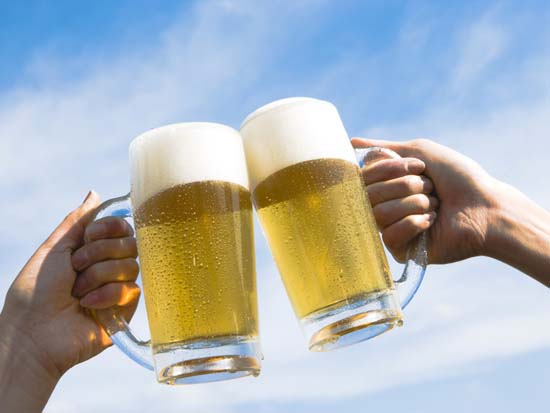Biofuels from brewery waste
Scientists at Cornell University (USA) have discovered hundreds of beneficial bacteria from brewery waste. Some of them can produce methane, a gas that burns efficiently.
Many people who open cold beer may not pay attention to the remaining water after the beer bottle has been brewed. But for researchers at Cornell University, acidity is a good environment for turning waste into biofuels.

Will waste of breweries be a biofuel source?(Illustration).
Dr. Laurgus T. Angenent of Cornell University, together with environmental and biological research professors, discovered the types of bacteria in breweries that produce methane efficiently from waste.
They hope that this new discovery could develop bacteria that can produce biofuels and other useful products.
Scientists have gathered a lot of literature on how to make Budweiser and create nine types of bacteria in the brewery's waste. And they have to regularly take wastewater samples from brewing facilities for more than a year. They then used gene analysis software to analyze more than 400,000 gene sequences from bacteria.
Among thousands of bacteria, researchers have found 145 useful types. Of the nine breweries, one has a single beneficial bacterium.
The interesting thing that scientists have found is that we can see thousands of these bacteria with our own eyes.
In particular, in waste bins, these bacteria will work together and one of them will produce methane, so that we can save millions of dollars each year.
This work is supported by the Ministry of Agriculture, the Department of Energy and the US National Institutes of Health
- Production of biofuels thanks to microwaves
- Producing biofuel from dry straw and trees
- Successfully producing the cheapest biofuels in the world
- Buses run by garbage
- Discover 'the world's oldest brewery' in a cave in Israel
- Leading candidate of biofuels
- Technology to turn waste water into biological crude oil
- A simple way to make beer at home
- Battery manufacturing works with animal dung
- Make the first flight with biofuels
- Ancient brewery from 3,500 years ago
- Biofuels: The problem lies in policy
 'Fine laughs' - Scary and painful torture in ancient times
'Fine laughs' - Scary and painful torture in ancient times The sequence of numbers 142857 of the Egyptian pyramids is known as the strangest number in the world - Why?
The sequence of numbers 142857 of the Egyptian pyramids is known as the strangest number in the world - Why? History of the iron
History of the iron What is alum?
What is alum?